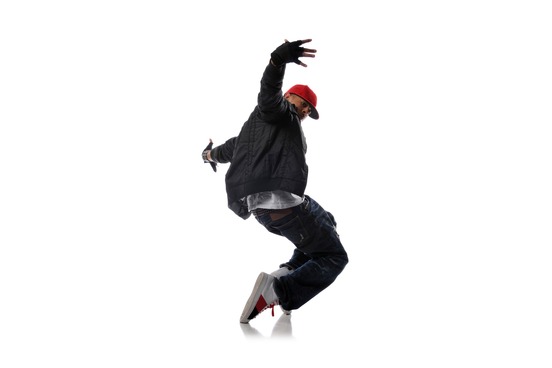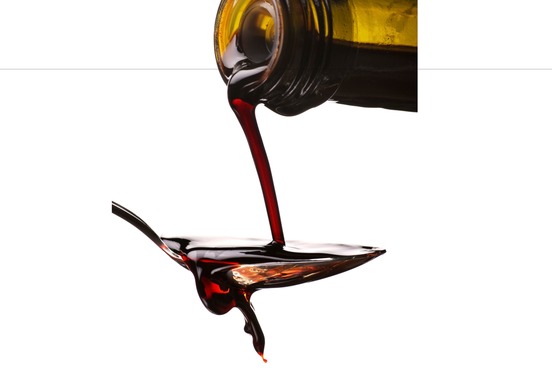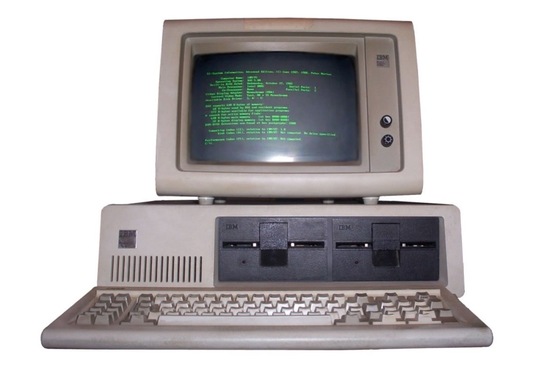
Hip-Hop
"Just when you thought all music was starting to sound alike, along came the 'hip hop' sound of New York, thrusting the art of rapping into the limelight.... [It] promises to be the most popular music form since rock 'n' roll." -Jet magazine, May 27, 1985
Originating in the South Bronx in the late 1970s, hip-hop went global by the end of the '80s.
So how did it get its name?
According to one explanation, the term pairs the hip that means "trendy" or "fashionable" with the leaping movement hop.
According to another, a member of the pioneering rap group Grandmaster Flash and the Furious Five was teasing a friend who was going into the army, repeating the hip/hop/hip/hop his friend would soon be marching to, and then vocally playing off that - in a way that later got incorporated into other songs and eventually gave the music its name.

Balsamic
Probably no single item represented the decade's interest in gourmet food as much as balsamic vinegar.
Balsamic comes from the Italian word for "curative," because the vinegar is traditionally thought to aid digestion. (A few sips of balsamic vinegar are sometimes taken after a meal, as a digestif.)
Either way, people went crazy for it. As the Boston Globe explained,
"Balsamic vinegar is like no other vinegar you have ever tasted. At its best it is aromatic, syrupy, dense, dark and creamy like honey; concentrated, mellow and slightly sweet with a sharp roundness that only hints of vinegar." (August 1985)

Apartheid
"The urge to punish South Africa for apartheid is now palpable throughout the United States. Americans want to destroy this abhorrent structure of racism or disown its sponsors' claimed kinship with Western culture." -Editorial, New York Times, June 9, 1985
Protests against apartheid, which means "apartness" in Afrikaans, heated up in 1970s South Africa. In the 1980s, the rest of the world joined in - with disinvestments, sanctions, and boycotts.
Anti-Apartheid leader Nelson Mandela was released from prison in 1990; apartheid officially came to an end four years later.
"[Bon Jovi]'s a great looking guy. And he's got a new perm." -Spin magazine, December 1986
Consider also: Madonna's poodle look, the "bubble" hairdos of Bananarama, and Michael Jackson's glossy Jheri curls on the Thriller video.
Yet the general technique had been around a long time.
The permanent wave ("a long-lasting hair wave or straightening produced by mechanical and chemical means") was invented in the early 1900s by a German immigrant to the UK. Karl Nessler took his invention to the US in 1915.
The perm has been in and out of style since then, but perhaps never rose to greater heights than it did in the '80s.

Crack
One theory is that its name comes from the crackling noise produced when it's heated, but it also suggests an impact on people's lives.
Crack became a major issue in the 1980s.
As the New York Times reported,
"Attorney General Edwin Meese 3d [said] today that the use of crack, a highly addictive form of cocaine, appeared to be a 'crisis of epidemic proportions in some areas' and urged creation of 24 special crack task forces around the country." -Philip Shenon, October 3, 1986

Yuppie
Powered by the bull market of the '80s and a post-Hippie embrace of materialism, yuppie symbolized a new style of consumer.
Merriam-Webster's definition - "a young college-educated adult who is employed in a well-paying profession and who lives and works in or near a large city" - doesn't convey the emotions (envy, scorn, etc.) the label generated.
The term was also a source of amusement.
As Time magazine asked, "Who are all those upwardly mobile folk with designer water, running shoes, pickled parquet floors and $450,000 condos in semislum buildings? Yuppies, of course ..." (January 9, 1984)
Image from The Yuppie Handbook, Long Shadow Books, 1984

Glasnost
For the USSR, the traumas of the 1980s included fighting a losing battle in Afghanistan after invading the country in 1979; being dubbed an "evil empire" by President Ronald Reagan; and dealing with a horrific nuclear power plant accident in Chernobyl.
In an effort to save the empire, in 1985, General Secretary Mikhail Gorbachev introduced the bold new policy of glasnost. Literally "publicity" in Russian, glasnost permitted new levels of freedom of speech.
It also became a buzzword of the decade. For instance, as People magazine reported,
"... the first Russian dancer permitted to perform again with a Soviet company after defecting, Makarova would become a remarkable human symbol of glasnost, Mikhail Gorbachev's daring design for a more open Soviet society." -Susan Schindehette, August 22, 1988
A cultural theory that escaped from 1970s academia, postmodernism went mainstream in the '80s.
It became widely (and often vaguely) used as a label for art, music, film, and more.
Merriam-Webster defines postmodern this way: "relating to ... any of various movements in reaction to modernism that are typically characterized by a return to traditional materials and forms (as in architecture) or by ironic self-reference and absurdity (as in literature)."
As the Los Angeles Times observed, "In fashion, as in food, the new adjective describing the new look is Post-Modern. Even a hair salon boasted in a recent advertisement in LA Style that it specialized in 'Post-Modern' hairdos." -Nikki Finke, Sept. 12, 1988

Safe Sex
"The best way to stop the spread of deadly AIDS is for the government to persuade Americans to 'develop a socially acceptable type of sex - safe sex,' the head of the Centers for Disease Control said Sunday." -Sean McCormally, United Press International, August 11, 1985
After first appearing in print in 1983, safe sex became a watchword of the decade.
Merriam-Webster dispassionately defines it as, "sexual activity and especially sexual intercourse in which various measures (as the use of latex condoms or the practice of monogamy) are taken to avoid disease (as AIDS) transmitted by sexual contact."
"In 1982 a cascade of computers beeped and blipped their way into the American office, the American school, the American home. The 'information revolution' that futurists have long predicted has arrived.... The creamy white [IBM] PC (for personal computer), introduced in August 1981, has set a standard of excellence for the industry." -Time, January 3, 1983
And so the word PC, which originally designated a particular IBM model, became the general term for the whole category of personal computers.
Since then, of course, IBM has stopped making PCs, and PC's meaning has become less encompassing: it now generally refers to a machine running Windows.
(Meanwhile, PC meaning "politically correct" would have to wait for another decade.)








